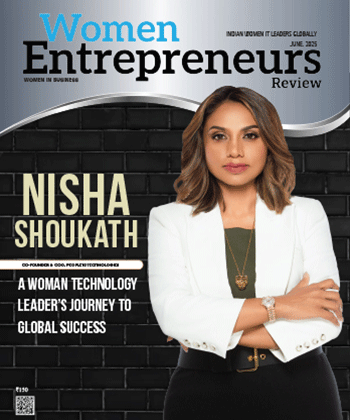
Optimizing Talent Management for Modern Business Success
By: Surbhi Gupta, Chief Talent Officer, South Asia, Publicis Groupe
With over 25 years spanning Business, HR, and key client management, Surbhi leads Talent at a major marketing and communications group; she transitioned from business strategy to HR within Publicis Groupe, rising to Chief Talent Officer for South Asia. She is passionate about Leadership, Change, Equity & Inclusion.
In a recent conversation with Women Entrepreneurs Review Magazine, Surbhi provided insights on measuring talent management success in business terms, approaches to diversity and inclusion fostering, and strategies for succession planning to cultivate a pipeline of qualified internal candidates for pivotal roles.
How do you measure the success of talent management initiatives in terms of business outcomes?
We use these three key aspects to assess our talent management efforts:
Engagement Scores: We survey employees at different stages of their life-cycle, such as onboarding, anniversary, promotion, on various pillars of engagement and satisfaction – such as Strong Management, Positive Workplace, Trust in the Organisation and Growth Opportunities. We compare our scores with global and Fortune 500 averages and do active action-planning around the feedback received on each of these pillars.
Employee retention and attrition rates: We look at turnover rates and reasons, especially voluntary ones, to find out where we need to improve talent management. Our attrition has reduced considerably in the last 12 months and our retention rates have improved.
Leadership & Succession Metrics: We measure the success of our leadership development programs by seeing how many internal talents move up to higher roles and lowering the risk and cost of external hiring.
In the last year itself several leadership positions have been secured through internal promotions.
How must companies approach diversity and inclusion in talent management, and what strategies have you implemented to foster a diverse and inclusive work culture?
We believe in Inclusion that fuels Diversity. Inclusion means allowing people to be authentic at work and eliminating biases. We regularly evaluate our policies and processes to ensure that there is no bias in them. We always emphasize that inclusion is a collective responsibility, not just a top-down one. Through our various awareness workshops, we educate managers, leaders, and colleagues on how to create an environment where everyone feels respected and secure. In the past 12 months, we have engaged with 300+ managers and 1000+ individual contributors on training and awareness programs.
How should companies balance the needs of the organization with the needs and desires of individual employees in talent management and how do we ensure that training and development opportunities align with employees' career goals and interests?
We use our performance management platform - Career Conversations, to first ask all our employees to create their Individual Growth Plan.
A Growth Plan helps the employee to indicate the training they require to reach their future goals.
Then we use MARCEL, our own AI learning platform, to give each employee a tailored learning and growth dashboard. This lets employees acquire new knowledge, build needed skills and pursue their passion and purpose toward new and planned career objectives.
What approach should be taken for succession planning to ensure a pipeline of qualified internal candidates for key roles within the organization?
Every year we launch an exercise called ‘Key Talent Review’, where we assess all our top leaders through a framework. We examine their capabilities, retention risk, business contribution, readiness for the next role and potential successors.
From this assessment, we create an Individual Development Plan (IDP) for each of these top leaders. The IDP will typically have elements of training, leadership development, stretch projects, coaching etc.
This helps us prepare for the growth of the leadership pipeline and support the succession planning agenda.
How would you adapt talent management strategies to meet the changing needs of the modern workforce, particularly in light of emerging technologies and remote work arrangements?
We help our people grow in hybrid environments with talent management. Our learning programs are hybrid too, with virtual, face-to-face, and self-paced E learning options on our platform. We listen to our people and adjust our initiatives, practices, and processes accordingly. In line with our ambition of ‘AI-Fication’ of Publicis Groupe, we partner with leading platforms to upskill our people on AI.We aim to make our organisation and everything we do AI-ready.


